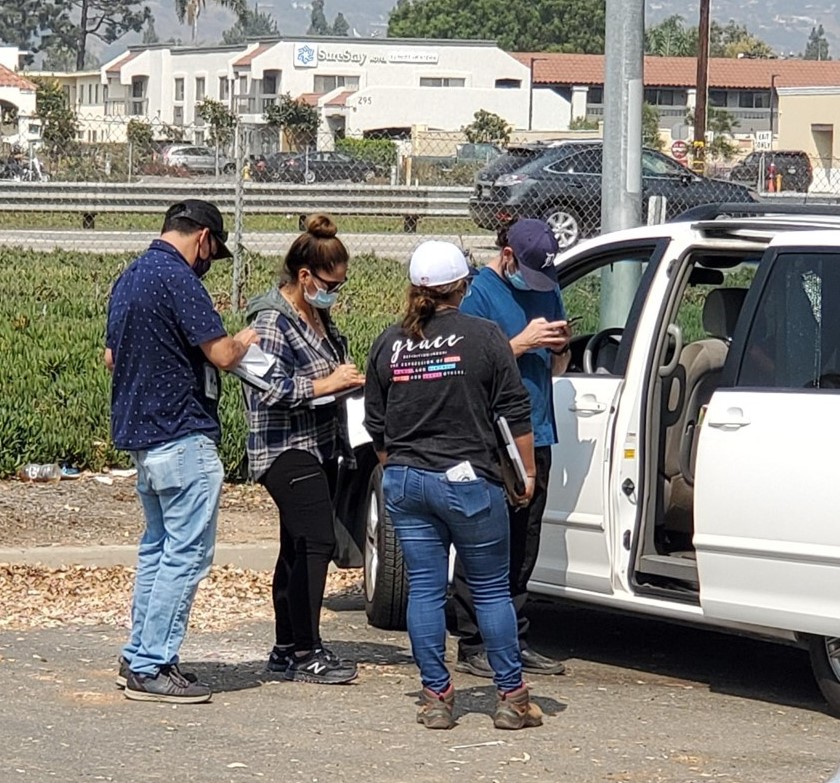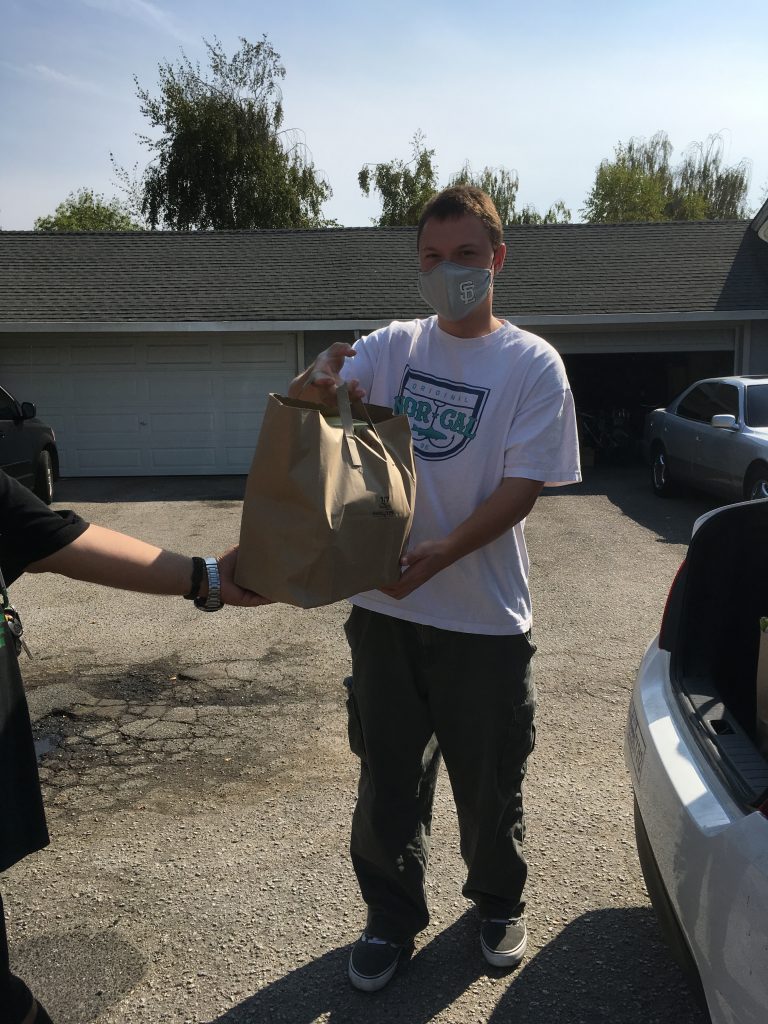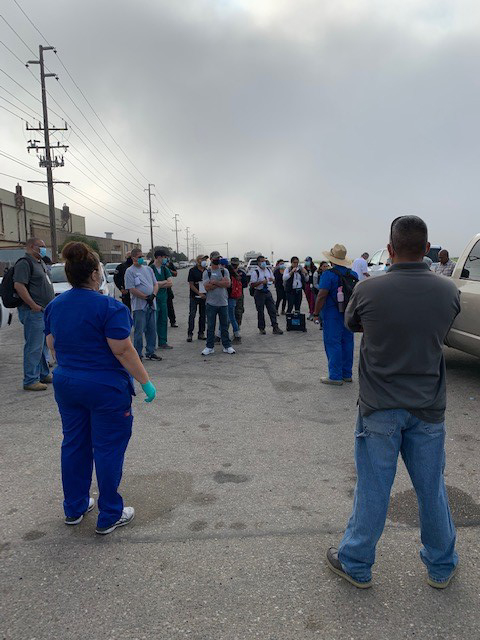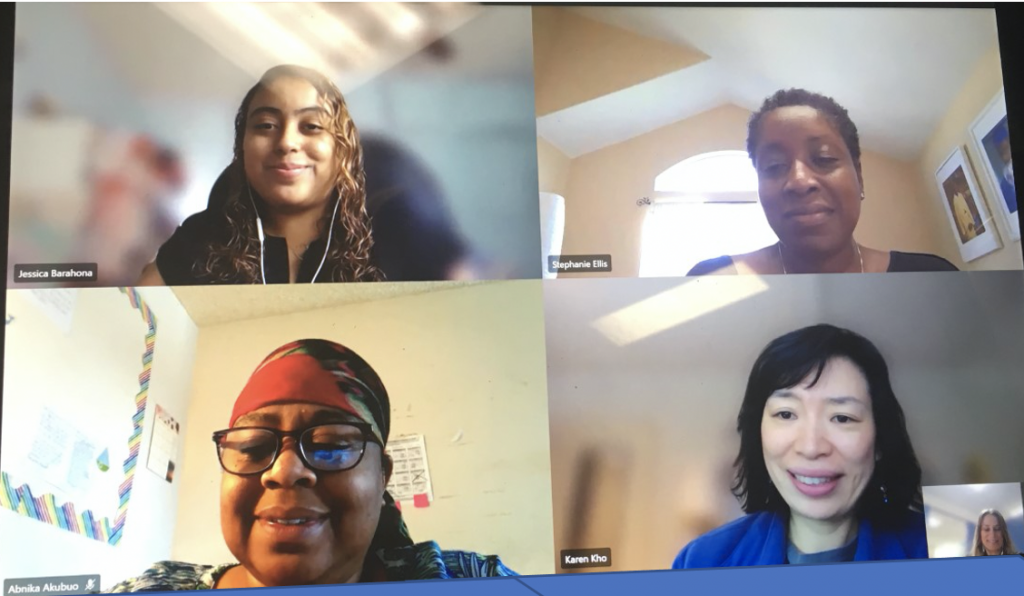
Community health workers and peers are critical in Whole Person Care
While community health workers (CHWs) and peers operate under many different job titles, they share the critical role of being a “connector”: linking community members to systems of care and fostering relationships with clients based on shared experience and a deep sense of empathy.
During the COVID-19 pandemic, these essential workers have stepped up to a new challenge, working on the front lines of the emergency response to care for those most vulnerable to the virus and linking members of the community to critical health and social services. Whether making food deliveries in the field, coordinating services at shelter-in-place sites, or using telehealth to improve care transitions, the contributions of CHWs and peers have been vital.
In California, CHWs and peers are an essential part of Whole Person Care, a five-year program under California’s Section 1115 Medicaid waiver. There are 25 Whole Person Care pilots operating across the state — regional coalitions of public healthcare systems, behavioral health providers, Medicaid managed care plans, and social service organizations are working together to improve care for people with complex health and social needs. Many Whole Person Care clients face circumstances that make them particularly vulnerable to COVID-19, such as living in crowded shelters and multi-family homes, and lacking access to food and hygiene supplies.
In this blog post, we highlight how CHWs and peers from Whole Person Care pilots in Santa Cruz, Ventura, and Los Angeles are helping those most vulnerable to COVID-19 stay healthy and safe.
Providing individualized services to support shelter-in-place
When COVID-19 cases began to rise in Santa Cruz, Whole Person Care partner and community behavioral health provider Front St Inc. quickly adapted its approach to help clients safely shelter in place. Gabriel Samara, a Peer Support Coach at Front St, started going into the field to deliver essential items like food and household supplies. “If a client has money, I can go to the store for them; otherwise I can do food bank runs. I also deliver necessities, like paper towels, toilet paper, and disinfectant,” said Samara.
Recognizing that many clients may need additional support to shelter in place, Whole Person Care peers also conduct physically distanced home visits, taking clients for walks or other outdoor activities to keep them engaged and active. “Just today, a client mentioned to me that they recently became homeless. I talked to their coordinator and posted an ad online to look for housing with a Housing Choice Voucher. They were really appreciative of me doing that, since access to a computer is difficult due to libraries being closed,” said Samara. “It’s the least I can do.”

Caring for homeless populations at isolation/quarantine sites and on the streets
Ventura’s Whole Person Care pilot program has partnered with organizations that support individuals experiencing homelessness, including the emergency operations center, Continuum of Care programs, county healthcare agency, behavioral health and public health departments, and community-based organizations. Together, they find emergency shelter in isolation and quarantine sites set up for people experiencing homelessness. CHWs provide on-site care management and support at these locations.
During intake, CHWs screen clients to identify social needs and address barriers to sustaining shelter. “It’s important to address challenges up-front when clients enter the site,” said Deanna Handel, Whole Person Care Manager. “Some have been living in encampments and it makes sense that they want to bring their lives with them — their pets, their possessions. They need support to adapt to such a different environment, especially when they are grappling with substance use or behavioral health needs. CHWs help ease that transition and make it feel safe.”
CHWs also play an important role on the county’s Backpack Medicine team, which conducts street outreach to triage and test individuals at high risk of COVID-19. CHWs help connect individuals living on the streets to healthcare and other social supports. The team also provides portable shower pods and hygiene supplies.

Supporting post-hospital discharges for vulnerable patients
For people with complex health and social needs, the 72 hours following hospital discharge are critical. In the Los Angeles Whole Person Care pilot, CHWs reach out and establish rapport with patients during their hospital admission and provide support as patients leave the hospital, reaching out again 30 days after discharge to ensure a safe transition home or to an alternate care facility. CHWs help patients connect to primary care and a pharmacist, address barriers to attending healthcare appointments, and link to existing benefits. Some CHWs have transitioned to a telehealth model in response to COVID-19, connecting with patients by phone and video visits.
“CHWs adapted very quickly to ensure patients received the support they needed,” said Letty Rodriguez Avila, WPC Director, Capacity Building. “They continue to help patients prepare for their telehealth primary care provider appointments and accompany patients to appointments to help them advocate for their needs, all via phone or video.”
CHWs also provide a range of services to support patients’ mental health, such as breathing techniques, meditation suggestions, and other tips and resources to stay safe. “Even before I explain the program,” said Stephanie Ellis, Community Health Worker, “I always ask patients how they are feeling. Patients appreciate it because a lot of times there isn’t an open forum to share their true feelings and they appreciate the acknowledgement that there is a lot going on and that their feelings are valued, and knowing that they are not alone.”

CHWs are essential to COVID-19 responses in California
In the face of a dangerous pandemic, CHWs and peers leveraged two of their greatest assets – flexibility and community connections – to adapt how they provide services and help clients safely shelter in place. As the end of the Whole Person Care program draws near and the State prepares to transition to CalAIM, it is critical that policymakers, healthcare organizations, and Medi-Cal managed care plans value and raise up CHWs and peers, so that they can continue to play their essential role in the COVID-19 pandemic and beyond.
*****************************************************************************************************
In February 2020, CAPH/SNI brought together Whole Person Care pilots to share promising practices for strengthening and sustaining the CHW and peer workforce. The convening was co-hosted by the state associations, in partnership with the National Center for Complex Health and Social Needs (an initiative of the Camden Coalition of Healthcare Providers), and generously sponsored by the National Center and the California Health Care Foundation. This blog post was also published by the National Center alongside a toolkit of implementation materials that pilots shared at the convening.
Authors: Amanda Clarke, Director of Programs, California Health Care Safety Net Institute; Megan Renfrew, Director of Communications, California Association of Public Hospitals and Health Systems and the California Health Care Safety Net Institute; Zoe So, Program Coordinator, California Health Care Safety Net Institute